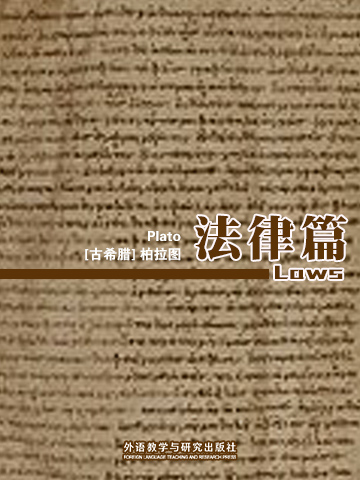The Laws, Plato's longest dialogue, has for centuries been recognized as the most comprehensive exposition of the practical consequences of his philosophy, a necessary corrective to the more visionary and utopian Republic. In this animated encounter between a foreign philosopher and a powerful statesman, not only do we see reflected, in Plato's own thought, eternal questions of the relation between political theory and practice, but we also witness the working out of a detailed plan for a new political order that embodies the results of Plato's mature reflection on the family, the status of women, property rights, criminal law, and the role of religion and the fine arts in a healthy republic.
法律篇是柏拉图最后且是最长的对话录。对话的开头并不是“什么是法律?”(这是《美诺篇》当中的问题),而是“谁有权力来制订法律?”此篇被普遍认为是柏拉图晚年的作品,写于他在西西里的独裁领导尝试失败后。
The Laws is Plato's last and longest dialogue. The conversation depicted in the work's twelve books begins with the question of who is given the credit for establishing a civilization's laws. Its musings on the ethics of government and law have established it as a classic of political philosophy alongside Plato's more widely read Republic.
- BOOK I
- BOOK II
- BOOK III
- BOOK IV
- BOOK V
- BOOK VI
- BOOK VII
- BOOK VIII
- BOOK IX
- BOOK X
- BOOK XI
- BOOK XII
- 书评 写书评
- 笔记
-
书评加载中...



















 京公网安备 11010802032529号
京公网安备 11010802032529号
笔记加载中...